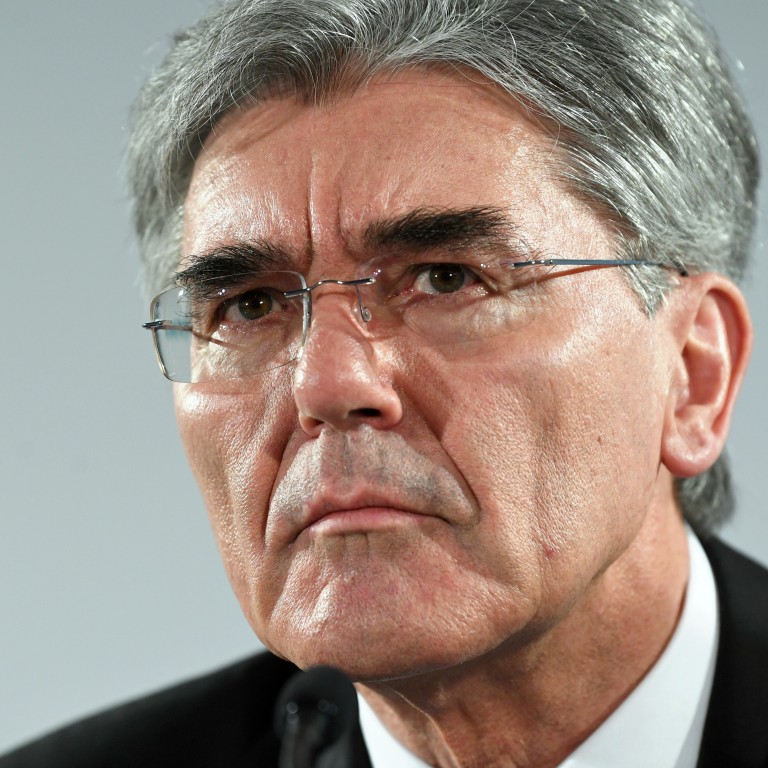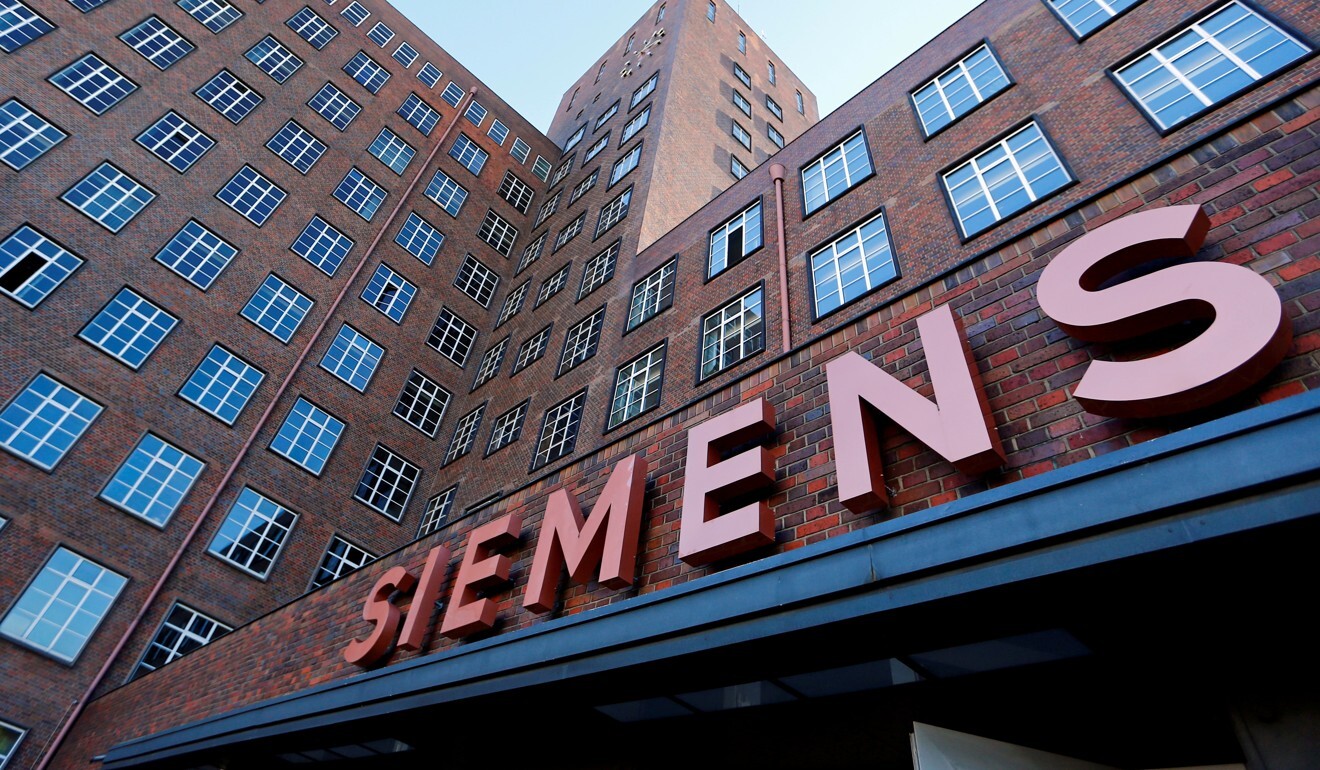
Siemens’ CEO criticises Beijing’s Hong Kong, Xinjiang policies, but firm ‘still committed’ to China
- On allegations of human rights abuses in Xinjiang, CEO Joe Kaeser says ‘we should neither tolerate all of this in our companies nor accept it without consequences’
- Firm says Kaeser ‘voiced his concerns over complicated issues because the company cares for the development of China’
In an interview with German newspaper Die Zeit, Joe Kaeser, who took over as Siemens’ CEO in 2013, said the company was “watching the current developments in Hong Kong, but also in the province of Xinjiang carefully and with concern”.
His comments were unusual because foreign companies in China have tended to not speaking openly on matters deemed sensitive to Beijing out of fear of retaliation.

“We have always said: as long as Beijing adheres to the one country, two systems agreement, German business can handle it,” Kaeser said.
“But it is indeed unusual that this understanding has not been clearly confirmed by China for some time.”
“In principle, we should neither tolerate all of this in our companies nor accept it without consequences from our partners.”
In an article published by Chinese nationalist tabloid Global Times over the weekend, Siemens said Kaeser “voiced his concerns over complicated issues because the company cares for the development of China, whether it’s Xinjiang, Hong Kong or anywhere else”.
“Our commitment to [the] China [market] remains unchanged,” it said.
The company did not immediately respond to a request for comment from the South China Morning Post.
As well as having to conduct tighter scrutiny to ensure forced labour was not being used to manufacture their products, the companies were prevented from investing in new projects in Xinjiang even though energy prices there were much lower, the chamber said.
European governments have repeatedly complained about the lack of reciprocity on market access for their companies investing in China and grown wary of the dependency on China for their supply of critical goods.
Siemens has had a presence in China since the 1980s and employs about 33,000 people in the country, which is its second-largest foreign market.

